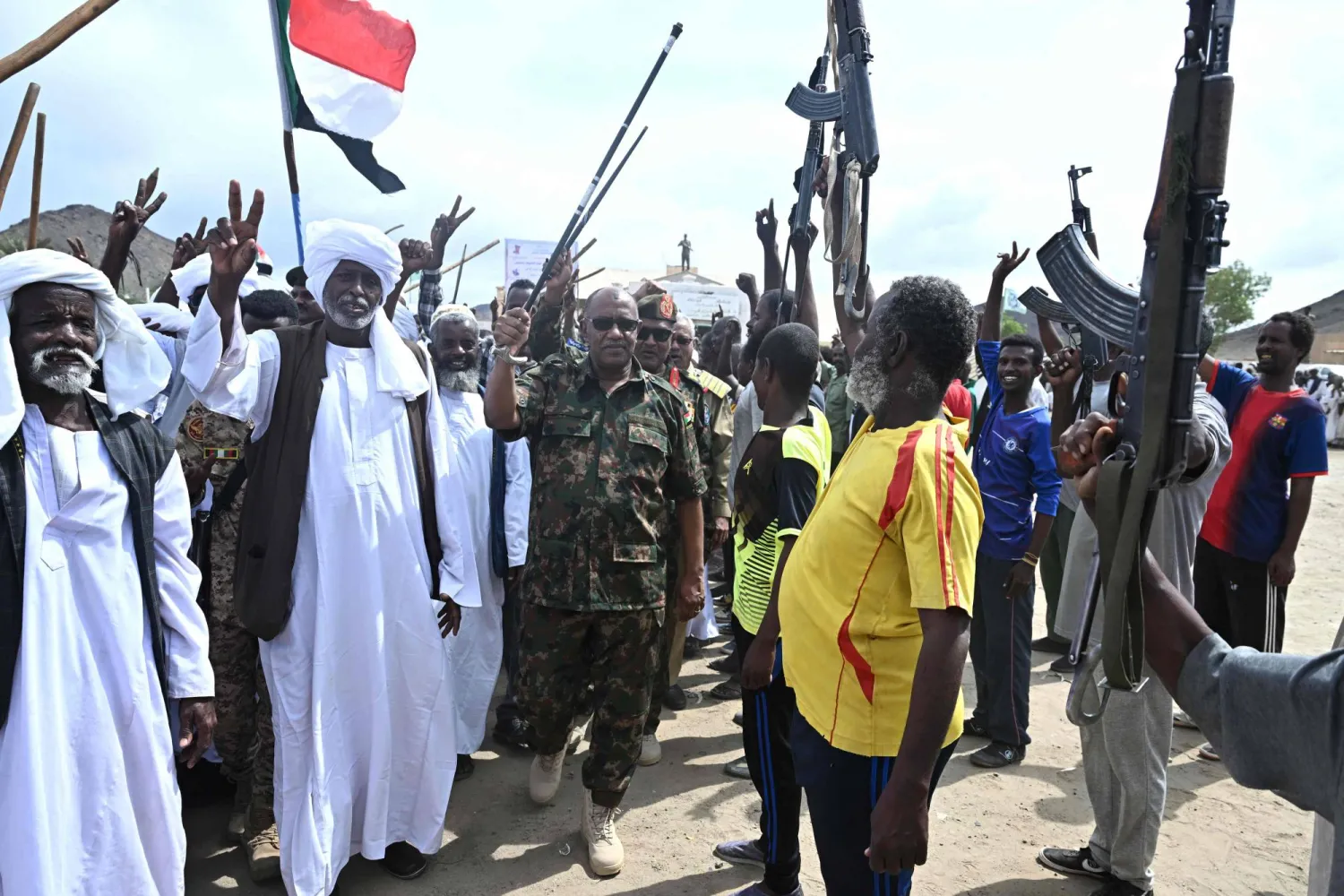Sudan’s warring military and paramilitary forces are escalating attacks with outside powers “fueling the fire,” which is intensifying the nightmare of hunger and disease for millions, the United Nations chief said Monday.
Secretary-General Antonio Guterres warned the UN Security Council that the 18-month war faces the serious possibility of “igniting regional instability from the Sahel to the Horn of Africa to the Red Sea.”
In a grim report, Guterres said the Sudanese people are living through numerous “nightmares” – from killings and “unspeakable atrocities” including widespread rapes to fast-spreading diseases, mass ethnic violence, and 750,000 people facing “catastrophic food insecurity” and famine conditions in North Darfur displacement sites.
He singled out “ shocking reports of mass killings and sexual violence ” in villages in east-central Gezira province in recent days. The UN and a doctors’ group said paramilitary fighters ran riot in the region in a multi-day attack that killed more than 120 people in one town.
Sudan plunged into conflict in mid-April 2023, when long-simmering tensions between its military and paramilitary leaders broke out in the capital Khartoum and spread to other regions including western Darfur.
The war has killed more than 24,000 people so far, according to Armed Conflict Location and Event Data, a group monitoring the conflict since it started. It has created the world's worst displacement crisis, with more than 11 million people fleeing their homes including 3 million to neighboring countries.
Guterres urged both sides to immediately agree to a cessation of hostilities, ensure the protection of civilians for which they bear primary responsibility, and enable humanitarian aid to flow to millions in need.
The secretary-general said he is “horrified” by reports that the paramilitary Rapid Support Forces, or RSF, continue to attack civilians in North Darfur’s capital El Fasher and surrounding areas, including displacement sites where famine has been confirmed.
“And I am also horrified by reports of attacks against civilians perpetrated by forces affiliated with the Sudanese Armed Forces in Khartoum, and by continuing mass civilian casualties due to apparently indiscriminate airstrikes in populated areas,” he said.
Guterres said those who violate international humanitarian law must be held accountable.
The war began four years after a pro-democracy uprising forced the military’s ouster of Sudan’s longtime Omar al-Bashir which was followed by a short-lived transition to democracy.
It has been marked by atrocities such as mass rape and ethnicity-motivated killings. The United Nations and international rights groups say these acts amount to war crimes and crimes against humanity, particularly in the western region of Darfur, which has been facing a bitter onslaught by the RSF, which was born out of the Janjaweed.
Two decades ago, Darfur became synonymous with genocide and war crimes, particularly by the notorious Janjaweed Arab militias, against populations that identify as Central or East African. Up to 300,000 people were killed and 2.7 million were driven from their homes.
That legacy appears to have returned, with the International Criminal Court’s prosecutor, Karim Khan, saying in January there are grounds to believe both sides may be committing war crimes, crimes against humanity, or genocide in Darfur.
Guterres: Sudan's Warring Forces are Escalating Attacks and Outsiders are Fueling the Fire

Members of Sudan's security forces take part in the opening ceremony of a headquarter facility in the army-controlled Port Sudan, where the government loyal to the army is based on the Red Sea coast, on October 28, 2024. (Photo by AFP)

Guterres: Sudan's Warring Forces are Escalating Attacks and Outsiders are Fueling the Fire

Members of Sudan's security forces take part in the opening ceremony of a headquarter facility in the army-controlled Port Sudan, where the government loyal to the army is based on the Red Sea coast, on October 28, 2024. (Photo by AFP)
لم تشترك بعد
انشئ حساباً خاصاً بك لتحصل على أخبار مخصصة لك ولتتمتع بخاصية حفظ المقالات وتتلقى نشراتنا البريدية المتنوعة







